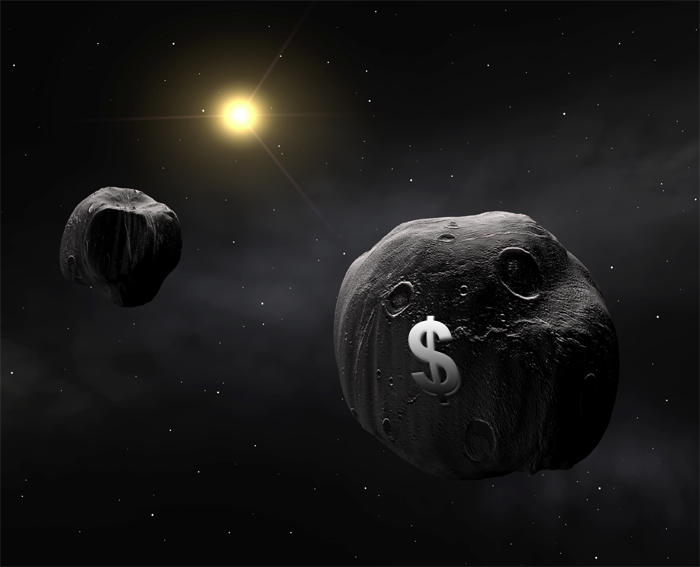The Solar System must be preserved via "space wilderness" areas to prevent a gold rush, warn researchers

(Natural News) Experts have warned that space mining would cause a new Gold Rush that might deplete the resources of the solar system in several centuries. Before that disaster happens, humans must set up “space wildernesses.”
The proposal came from researchers at the Smithsonian Institution and King’s College London. It recommended setting aside seven-eights of the solar system as protected regions.
The regulation sought to protect planets, moons, and the like from unrestricted mining and industrial exploitation. It would also make sure that humankind expands throughout the solar system at a manageable rate to prevent resource depletion.
Smithsonian researcher Martin Elvis and his King’s counterpart Tony Milligan investigated the time-frame within which humankind might deplete the accessible resources of the solar system.
For their evaluation, they set an annual growth rate of 3.5 percent for the space mining industry. It matched the historical increase of iron consumption from the Industrial Revolution to modern times.
They reported that space mining would consume 12.5 percent of the available materials within 400 years. Afterward, humankind would have just 60 years to manage the growth of the space mining industry before it depleted the remaining resources in the solar system. (Related: The universe is expanding too fast, admit baffled astronomers.)
Unrestricted space mining may deplete the solar system’s resources in less than 500 years
The researchers proposed that humankind restrict the industrial exploitation of the solar system to 12.5 percent of the available resources. The rest would receive protected status as wilderness areas.
Get CLEAN FOOD and help support our mission to keep you informed: The Health Ranger Store lab verifies everything we sell with accredited testing for heavy metals, microbiology and food safety. Certified organic facility, ISO-accredited on-site laboratory, no GMOs or synthetic ingredients. The world's #1 source of lab-verified clean foods and superfoods for nutritional healing. 600+ products available. Explore now.
The other worlds and bodies of the solar system would remain in their original state. They would not get marked by human industry and pollution.
“If we don’t think about this now, we will go ahead as we always have, and in a few hundred years we will face an extreme crisis, much worse than we have on Earth now,” said Elvis. “Once you’ve exploited the solar system, there’s nowhere left to go.”
The Smithsonian researcher stressed the need to set a mining cap early on. By limiting space mining, the industry would have more than enough time to transform into a steady-state economic system.
Further, the mining cap made it possible to double the usage of the resources thrice before hitting the limit.
Elvis noted that one-eight of the solar system’s resources were plenty for humankind’s needs. For example, 12.5 percent of all iron in the asteroid belt equaled more than a million times the iron ore reserves on Earth.
Preserving the solar system as protected wilderness will help prevent resource depletion
The Smithsonian and King’s researchers identified asteroids, the moon, Mars, and the other rocky planets as the easiest targets for space mining. On the flip side, it would be expensive to extract valuable materials from gas giants like Jupiter or the sun.
They theorized that space miners might send gold, platinum, and other precious metals back to Earth. However, most of the extracted resources would remain in space to build up the infrastructure.
International space agencies already have plans for outer space. For example, the China National Space Agency (CNSA) will build a “scientific” lunar base near the south pole of the moon within a decade. The Chinese will mine ice for consumption by human astronauts as well as the production of rocket fuel.
Many space mining companies also want a slice of the solar system pie. The UK-based Asteroid Mining Company is planning to launch an asteroid prospecting satellite in a few years’ time.
“If everything goes right, we could be sending our first mining missions into space within 10 years,” warned Elvis. “Once it starts, and somebody makes an enormous profit, there will be the equivalent of a gold rush.”
Sources include:



